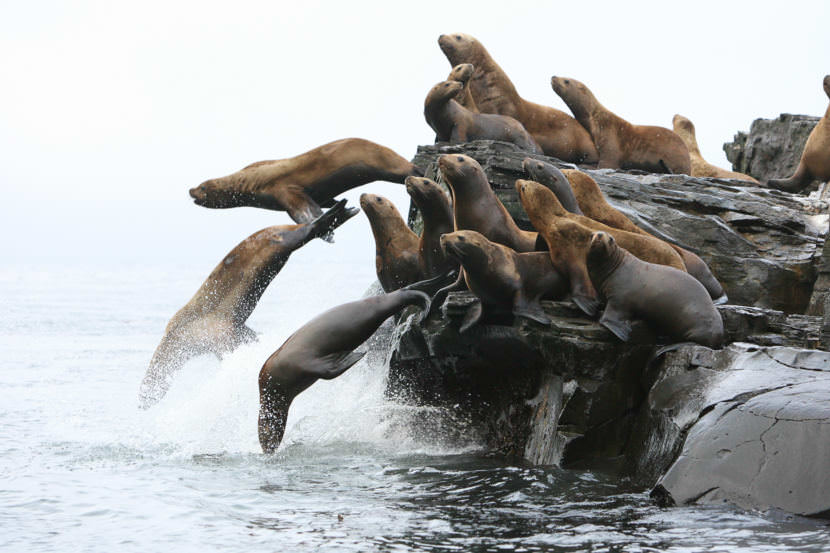
New research could help wildlife managers better protect declining Steller sea lion populations. The study looks at why sea lions zero in on specific hunting hotspots.
For humans, knowing where to find food is easy. But biologist Mike Sigler said for Steller sea lions, it’s a different story.
“I wondered for sea lions what they did when they had to find food,” Sigler said. “They’re not fortunate like humans that they can know where the nearest restaurant or corner store is.”
This has been a hot topic for researchers who have watched western Steller sea lion populations decline, hitting a low in 2002. The decline is linked to a lack of food.
So Sigler, who works for the National Oceanic and Atmospheric Administration, set out out to track sea lions’ seasonal pattern of foraging in sheltered southeast Alaska. He believes it’s probably the only place in the state where this study could have happened, because of harsh conditions in places like the Aleutians. But the conclusions can be applied to other populations.
Sea lions are looking for reliable sources of food. Sigler said that’s even more important than finding a place that has the most food.
“For sea lions, I think what good translates to for them is something that is reliable,” Sigler said. “In other words, it’s persistent. Persistence mattered more than how abundant the prey were.”
It may seem obvious, but the more consistent prey is in a given location, the more sea lions can thrive there. Understanding that dynamic gives scientists and managers a better idea of the impact temporary fishing closures might have on sea lion populations.
Zoe Sobel is a reporter with Alaska's Energy Desk based in Unalaska. As a high schooler in Portland, Maine, Zoë Sobel got her first taste of public radio at NPR’s easternmost station. From there, she moved to Boston where she studied at Wellesley College and worked at WBUR, covering sports for Only A Game and the trial of convicted Boston Marathon bomber Dzhokhar Tsarnaev.




